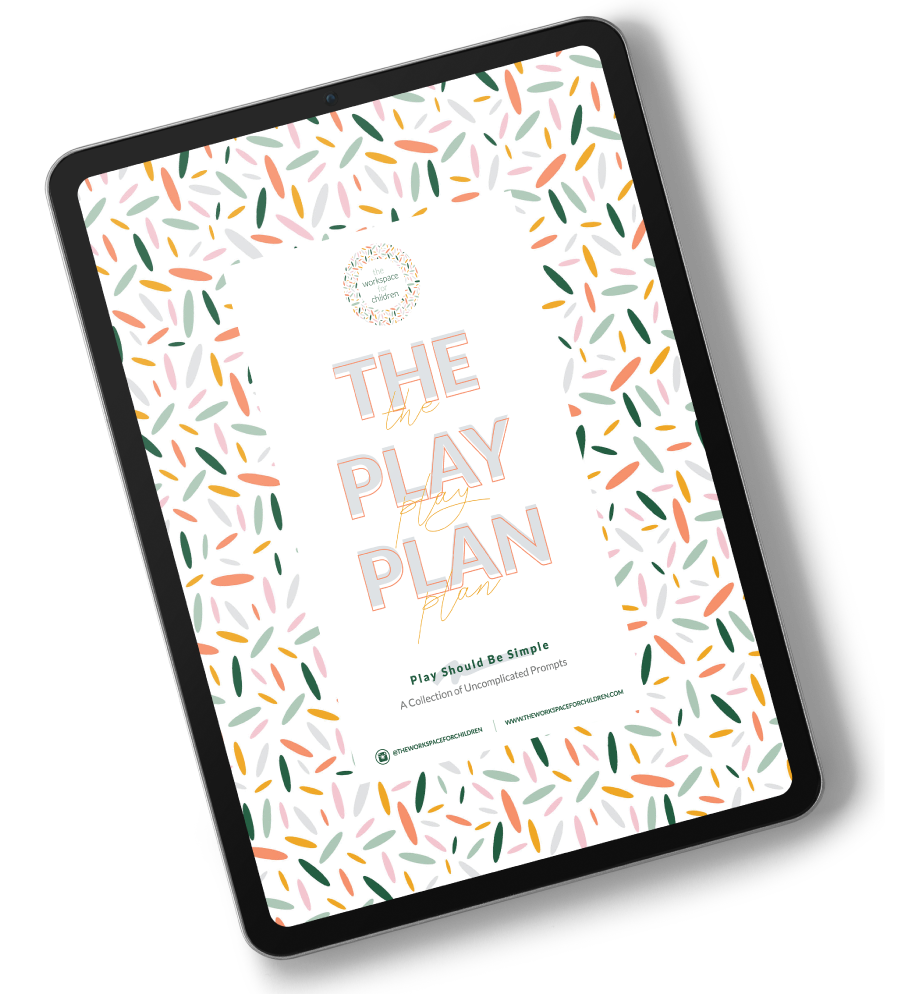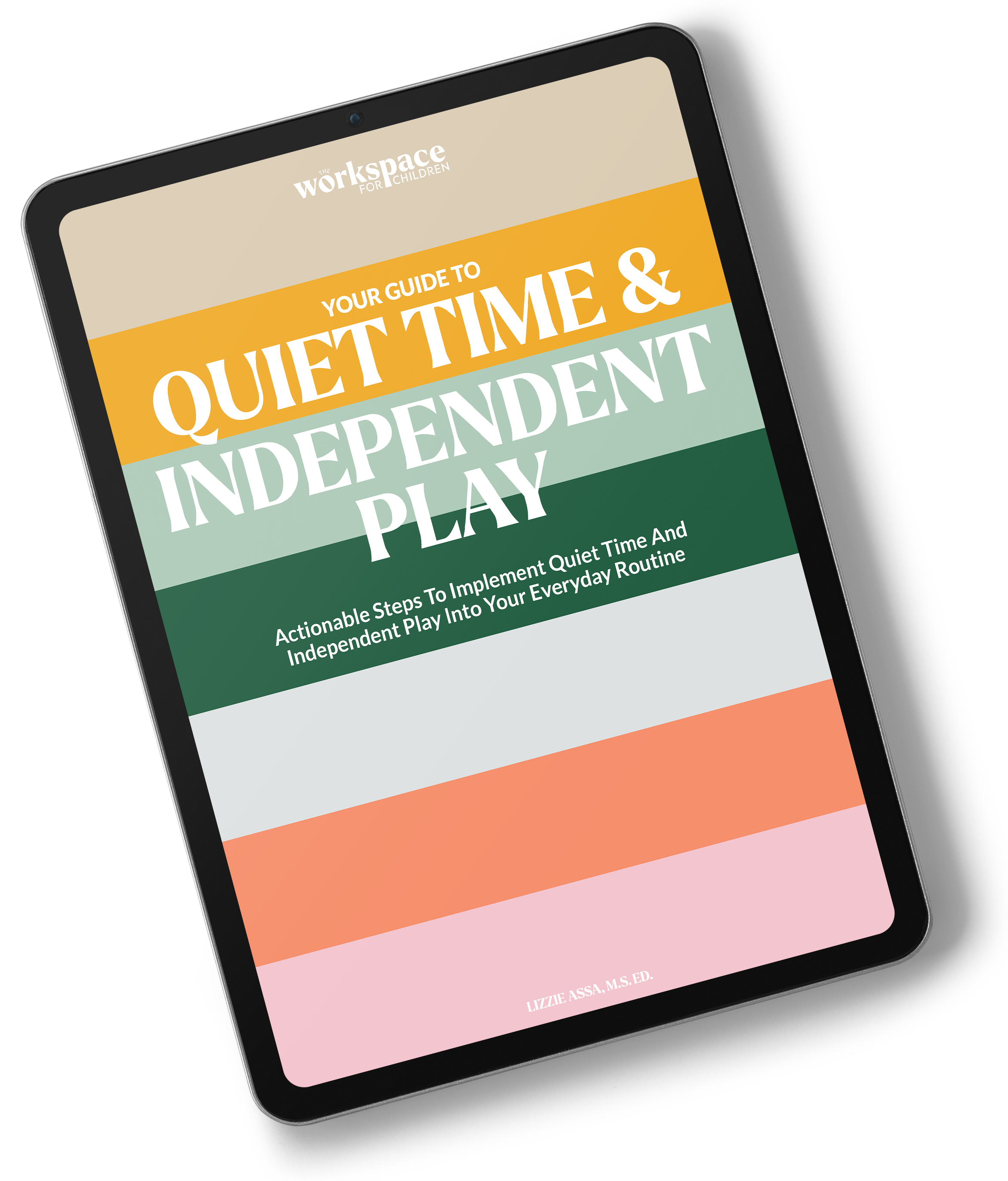Rough & Tumble Play: Why It's Vital for Kids and How to Guide It Safely
/Research shows that rough-and-tumble play helps kids learn to regulate and manage emotions… How to manage when things get too rough.
Read MoreResearch shows that rough-and-tumble play helps kids learn to regulate and manage emotions… How to manage when things get too rough.
Read MoreHave you ever found yourself in a spot where your child is going through something tough, and you sense they really need to talk it out, but you're just not sure how to start digging into it? This post will give you some tools to navigate those challenging conversations.
Read MoreHow to handle transitioning back to school and all of the emotions that come along with it.
Read MoreEffective communication with your child is crucial for their growth and development. When your child doesn't get their way, it can be challenging to navigate the situation without causing a meltdown. In this blog post, I’ll cover four things you can say to your child to help them understand their feelings and find a solution that works for everyone.
Read MoreSetting limits is HARD. Setting limits when your child is melting down is even HARDER. Here are 4 steps to help you stay grounded and anchor you in the storm.
Read More
Have you ever noticed that whatever type of mood you’re in, your family follows suit? Whether you like it or not, your mood as the parent sets the tone.
Whether you’re feeling happy and energized, or down and stressed out, your child is most likely feeling the same way.
Let’s talk about what you can do to help your child cope with stress and find relief when times are tough.
Stress makes it so hard to regulate our own emotions.
Snapping at your child because you are mad at your partner.
Tuning your child out because you are worried about finances.
Being impatient with your child when you are waiting on crucial medical results.
Feeling exhausted and defeated before your little one even plants that first kiss on your cheek.
All of these feelings are completely valid and normal to have, and I understand wanting to find a way to try and eliminate stress altogether.
However, stress is inevitable. Stress is part of living a full life, and eliminating stress is not the answer. Rather than eliminating stress, learning how to tolerate stress is the goal.
Even as adults, learning to tolerate stress can be difficult. So just imagine how hard it can be for your child.
The best thing we can do for our children when stress comes knocking on the door is to teach them coping skills by modeling and practicing them ourselves.
Here are 5 things to try the next time you notice your little one may be feeling overwhelmed, anxious, or stressed out:
Sensory play is a great way to reduce stress, as well as calm and soothe anxiety. By stimulating your child’s senses through sensory play, they become more grounded and are able to better regulate what they are feeling. This activity doesn’t have to be anything fancy. It can be something as simple as spinning in a chair, running and jumping in the wind, cooking, or water play.
If you need a resource of uncomplicated play prompts, The Play Plan might be for you!
Sleep reduces irritability and anxiety, so it only makes sense to make sleep a priority when you are feeling stressed out and run down. If your child is out of the napping stage, a way to ensure that they are getting extra rest is to make a conscious effort to get them to bed earlier. Don’t overcomplicate it - just aim for a bedtime 5 minutes earlier than the night before, and continue this for a few days.
Getting outside is not only an easy way to reduce stress but it has also been scientifically proven to reduce stress hormones! Don’t think that you have to plan an extravagant outing for your family in order for this to be effective! It could just be you and your child taking a walk around the block. Even the smallest amount of Vitamin D will work wonders to help you both feel more at ease.
Water in all forms reduces stress. Try adding fruit to your and your little one’s drinking water for some extra flavor, go swimming, jump in puddles, even take a mid-day bath just for fun! Honestly, the possibilities are endless with this one.
If you’re looking for a fun activity for your child that is sure to lighten their mood, check out this blog to learn how to put together a toy washing station. It combines sensory play, water, and you could even do it outside. They’ll love it!
Take 10 minutes for just you and your child to connect. Turn off the screens, put the toys away, and just be. Sometimes the only thing our children need from us is our full attention. Be present and enjoy this time with them. Make eye contact, and let them know that you’re there for them.
I wish I could take away your worries and make everything turn out the way you want it to.
I know what it’s like to be feeling stressed out and then have “mom guilt” sneak in and make you feel like you are not doing a good job. I also know that you are an amazing parent.
By learning to cope with stress and teaching your children to do the same, you are giving them one of the best and most valuable life lessons you could possibly give them!
I hope you enjoyed this blog!
For more support and tips related to this topic, join The Workspace for Children community on Instagram! Let’s parent together.
This one tip can help you raise independent kids.
Have you ever noticed that despite a solid routine, there are just some days when you know your child is not going to have a successful quiet time? There’s a good reason and it is completely solvable.

THE PLAY PLAN
The Play Plan is an ebook containing play invitations that are easy to set up, inexpensive, and apply children of all ages. The 25 play prompts are divided into five categories and use items that you most likely already have at home. These play prompts consider children of all ages, all developmental stages, and all learning capabilities. Each prompt can be tailored to fit your unique child’s needs. Play is meant to be simple.
$28

QUIET TIME AND INDEPENDENT PLAY EBOOK
This downloadable ebook is your personal guide to Quiet Time and Independent Play. This ebook will teach you the basic steps to implementing a Quiet Time and Independent Play strategy that works. The guide teaches you my proven 5 step method for implementing a daily break without using screens. (Guide includes 5 bonus invitations to play.)
$27
What do do when your child says I hate you, plus our favorite children’s books for talking about anger with your kids.
Read MoreStruggling with hitting? Read this.
Read More
Research shows that rough-and-tumble play helps kids learn to regulate and manage emotions… How to manage when things get too rough.